It is sometimes argued that one of the benefits of legalizing addictive drugs is that they could be taxed, and the government revenues enhanced. From this perspective, this would be the only valid case against legalization. —Walter Block
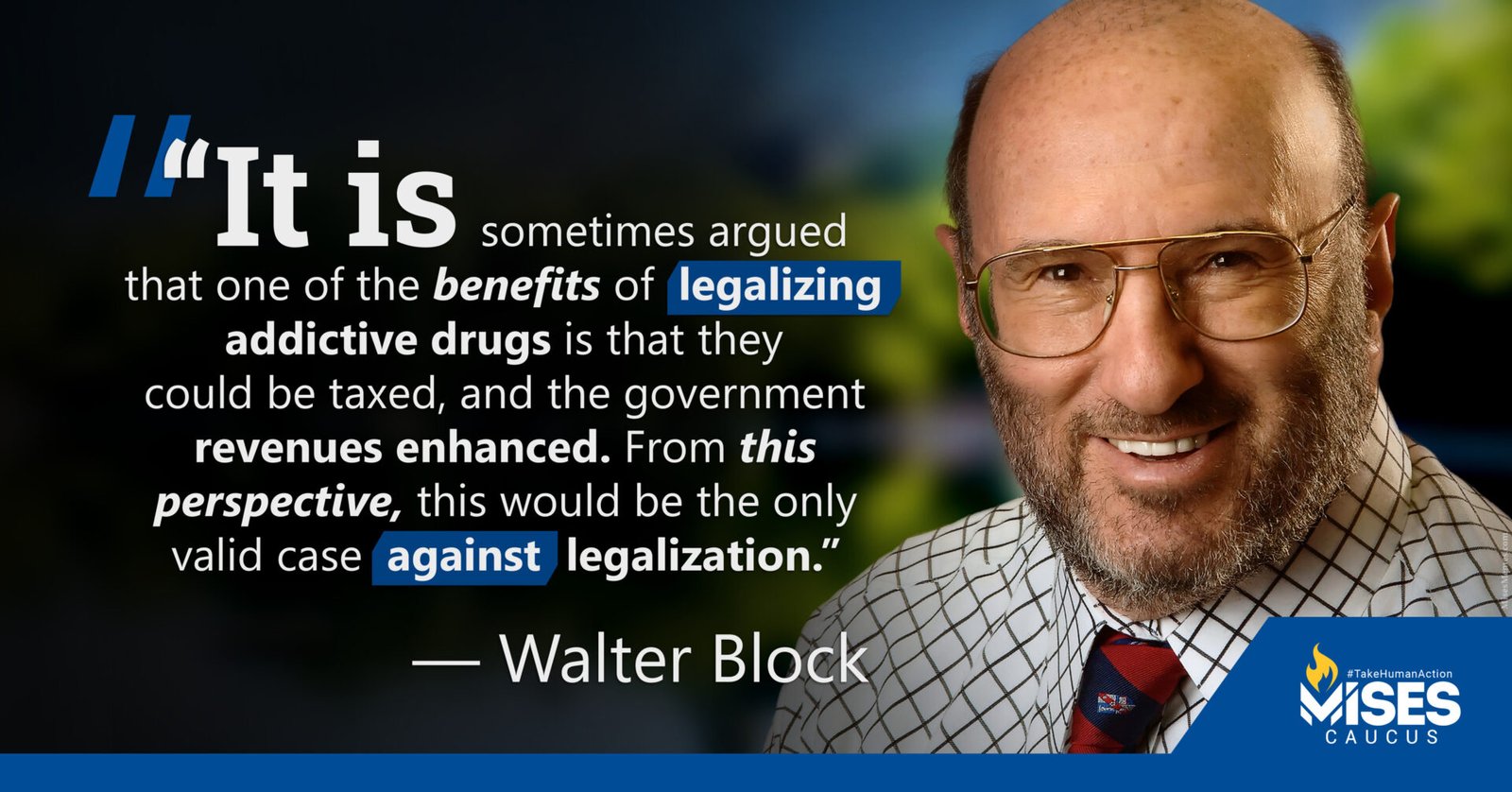

It is sometimes argued that one of the benefits of legalizing addictive drugs is that they could be taxed, and the government revenues enhanced. From this perspective, this would be the only valid case against legalization. —Walter Block
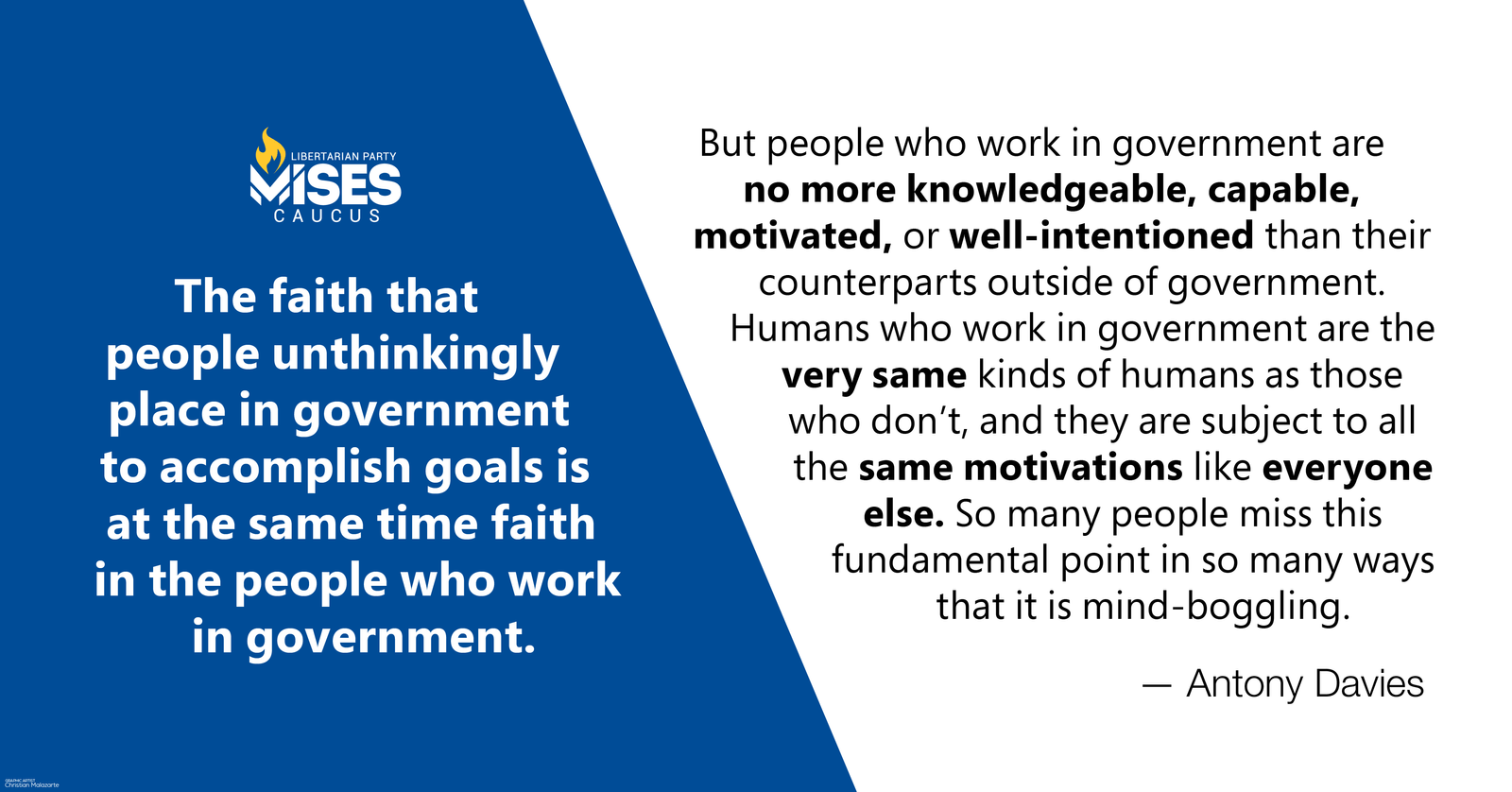
The faith that people unthinkingly place in government to accomplish goals is at the same time faith in the people who work in government. But people who work in government are no more knowledgeable, capable, motivated, or well-intentioned than their counterparts outside of government. Humans who work in government are the very same kinds of humans as those who don’t, and they are subject to all the same motivations like everyone else. So many people miss this fundamental point in so many ways that it is mind-boggling. —Antony Davies
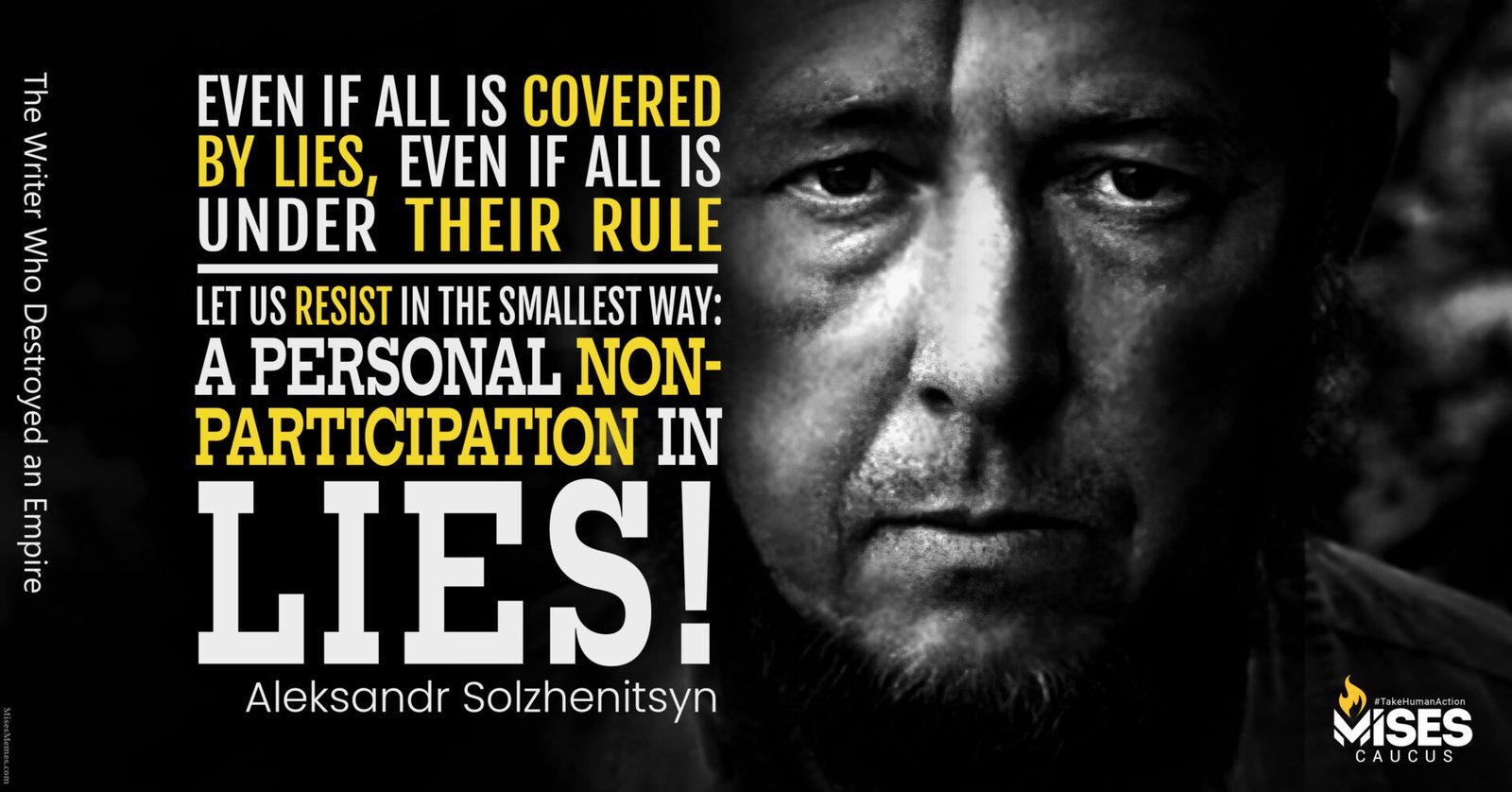
Even if all is covered by lies, even if all is under their rule let us resist in the smallest way: a personal non-participation in lies! —Aleksandr Solzhenitsyn
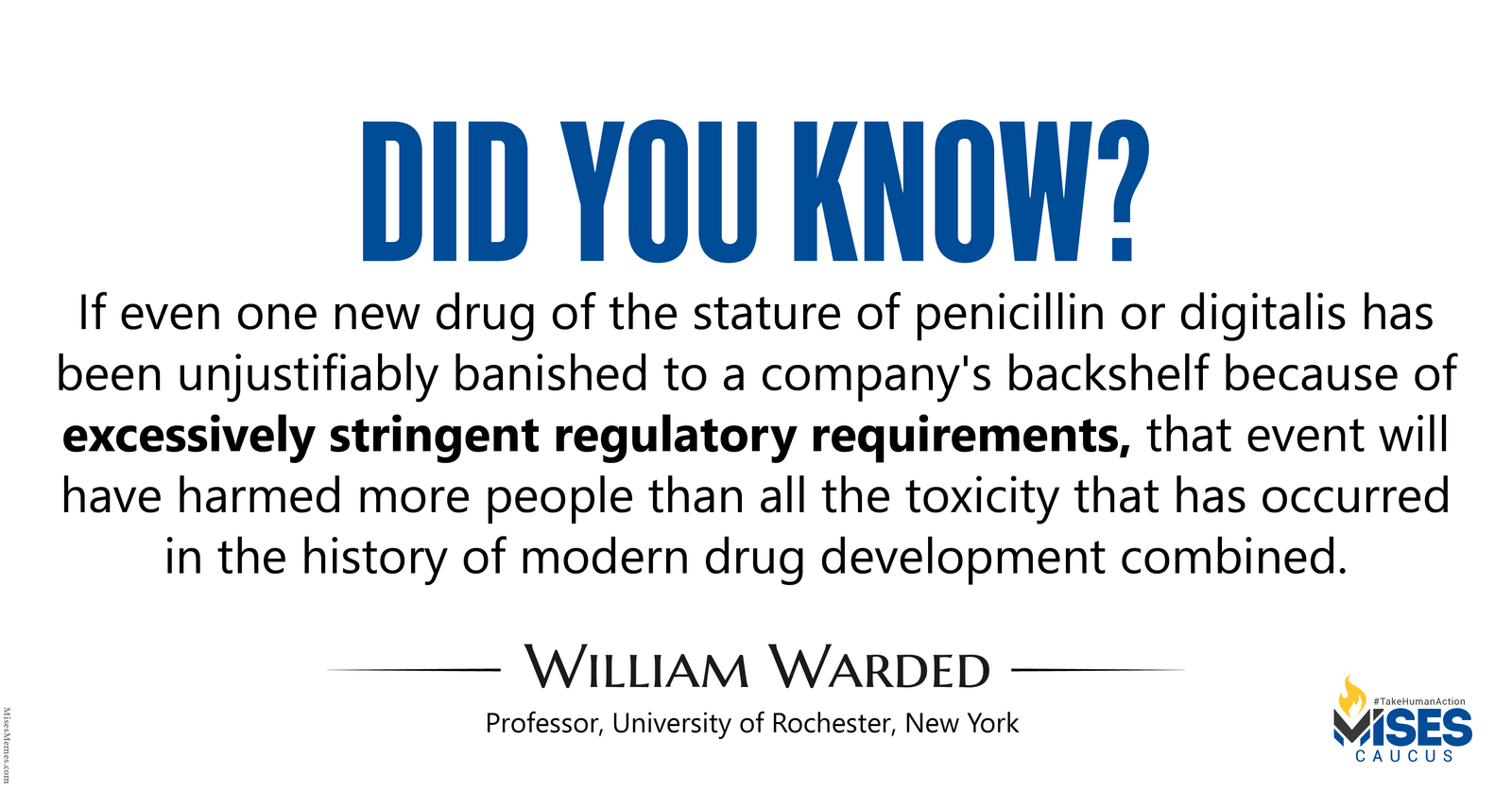
If even one new drug of the stature of penicillin or digitalis has been unjustifiably banished to a company’s backshelf because of excessively stringent regulatory requirements, that event will have harmed more people than all the toxicity that has occurred in the history of modern drug development combined. —William Warded
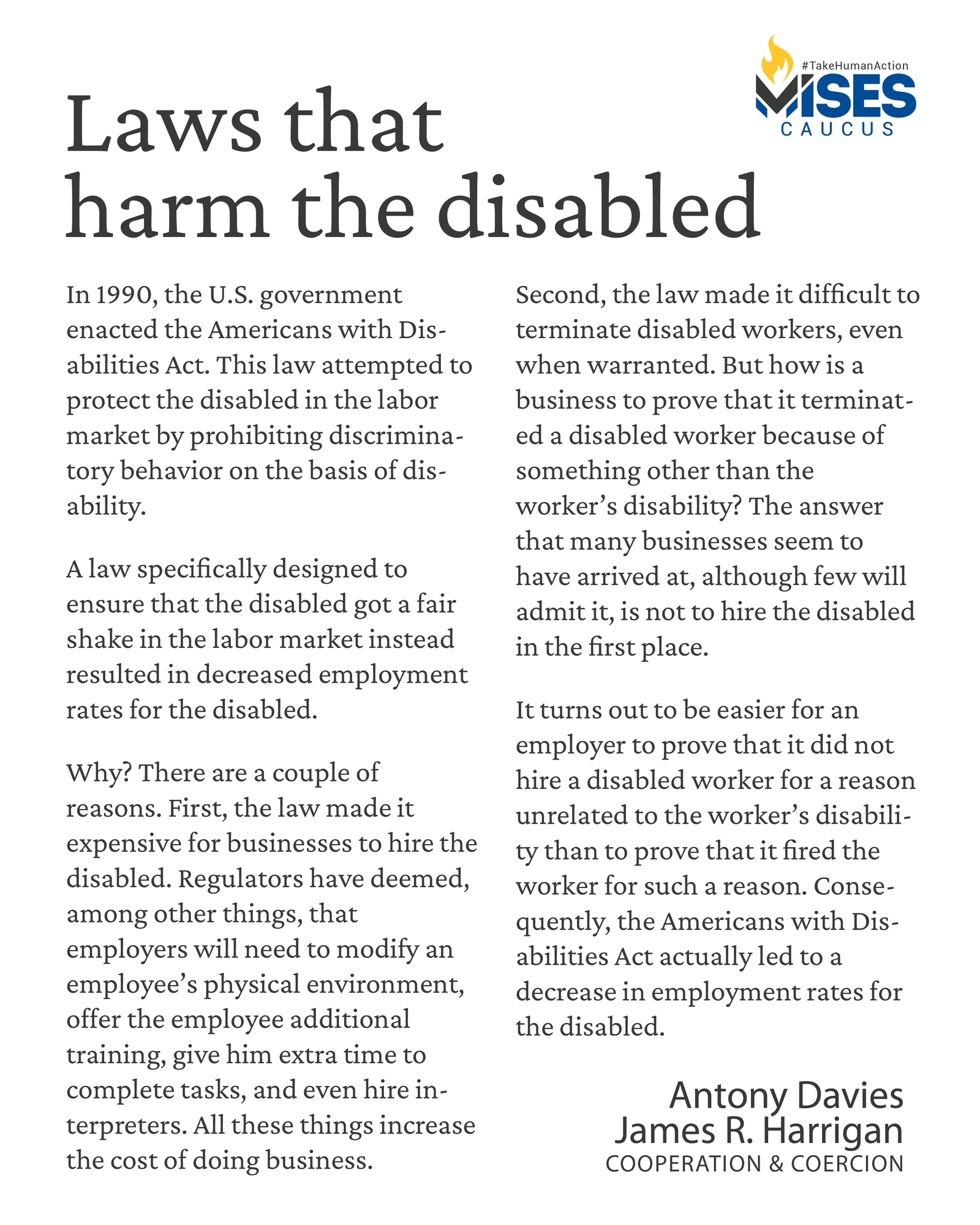
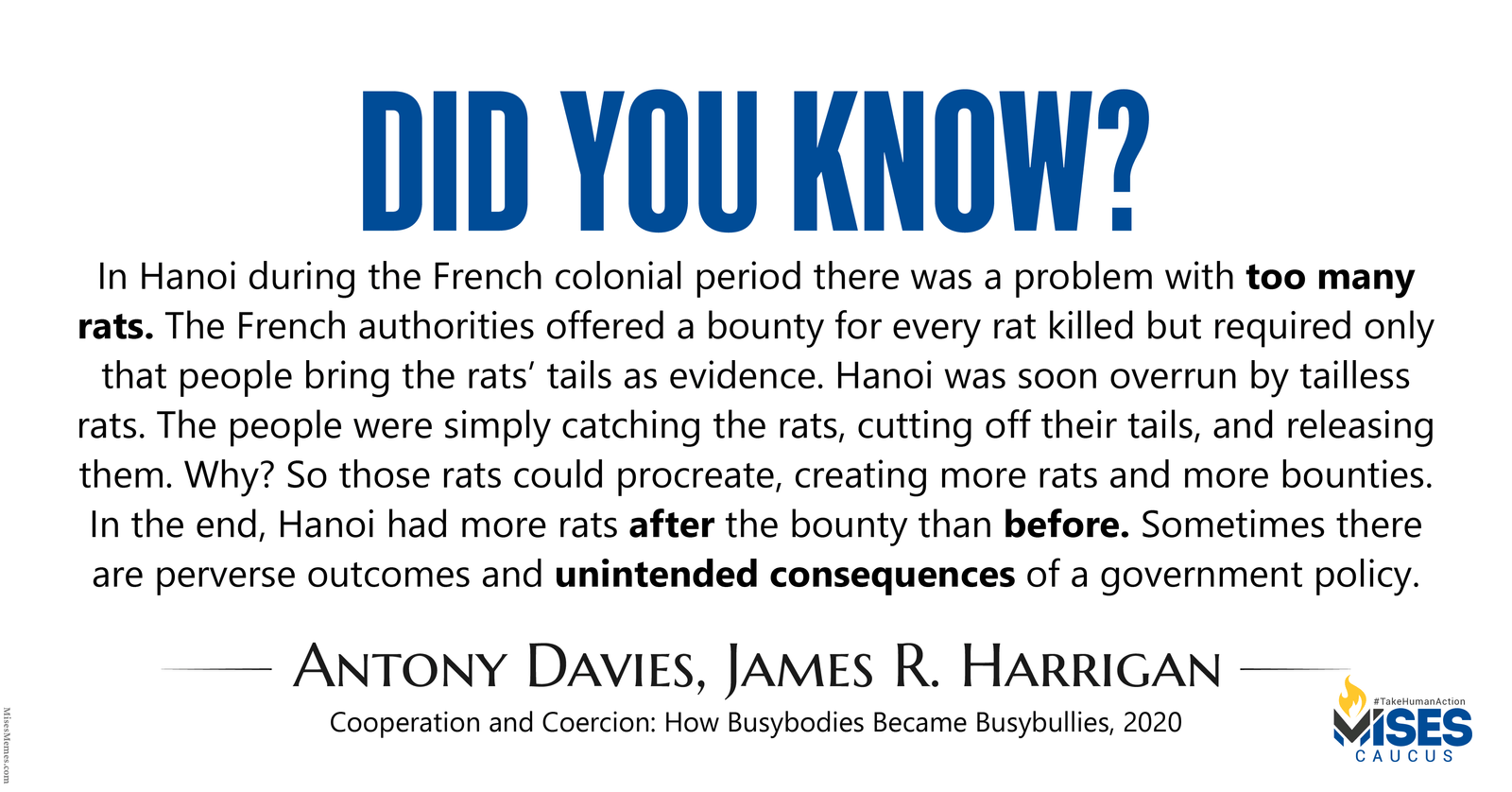
In Hanoi during the French colonial period there was a problem with too many rats. The French authorities offered a bounty for every rat killed but required only that people bring the rats’ tails as evidence. Hanoi was soon overrun by tailless rats. The people were simply catching the rats, cutting off their tails, and releasing them. Why? So those rats could procreate, creating more rats and more bounties. In the end, Hanoi had more rats after the bounty than before. Sometimes there are perverse outcomes and unintended consequences of a government policy. —Antony Davies, James R. Harrigan
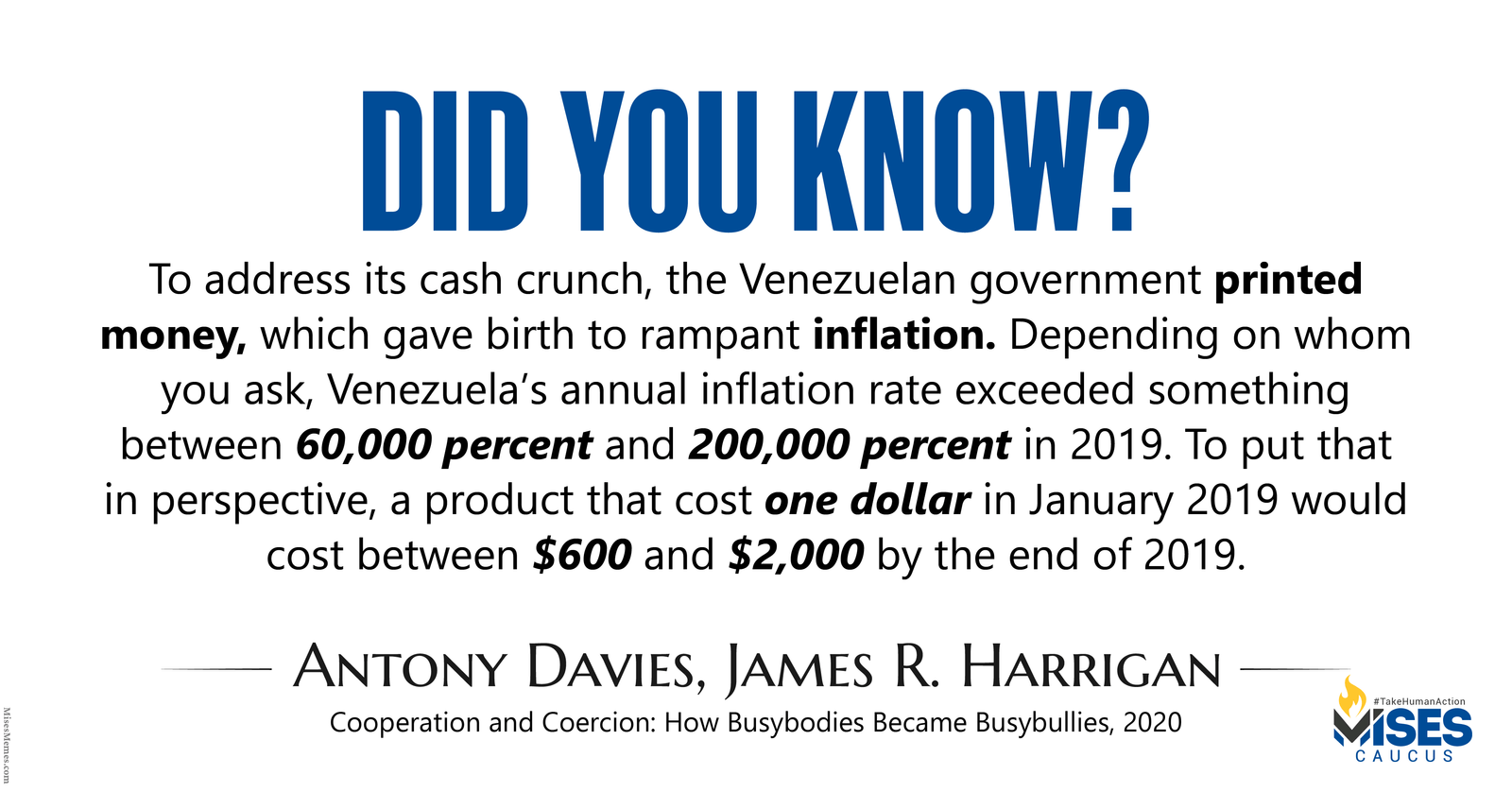
To address its cash crunch, the Venezuelan government printed money, which gave birth to rampant inflation. Depending on whom you ask, Venezuela’s annual inflation rate exceeded something between 60,000 percent and 200,000 percent in 2019. To put that in perspective, a product that cost one dollar in January 2019 would cost between $600 and $2,000 by the end of 2019. —Antony Davies, James R. Harrigan
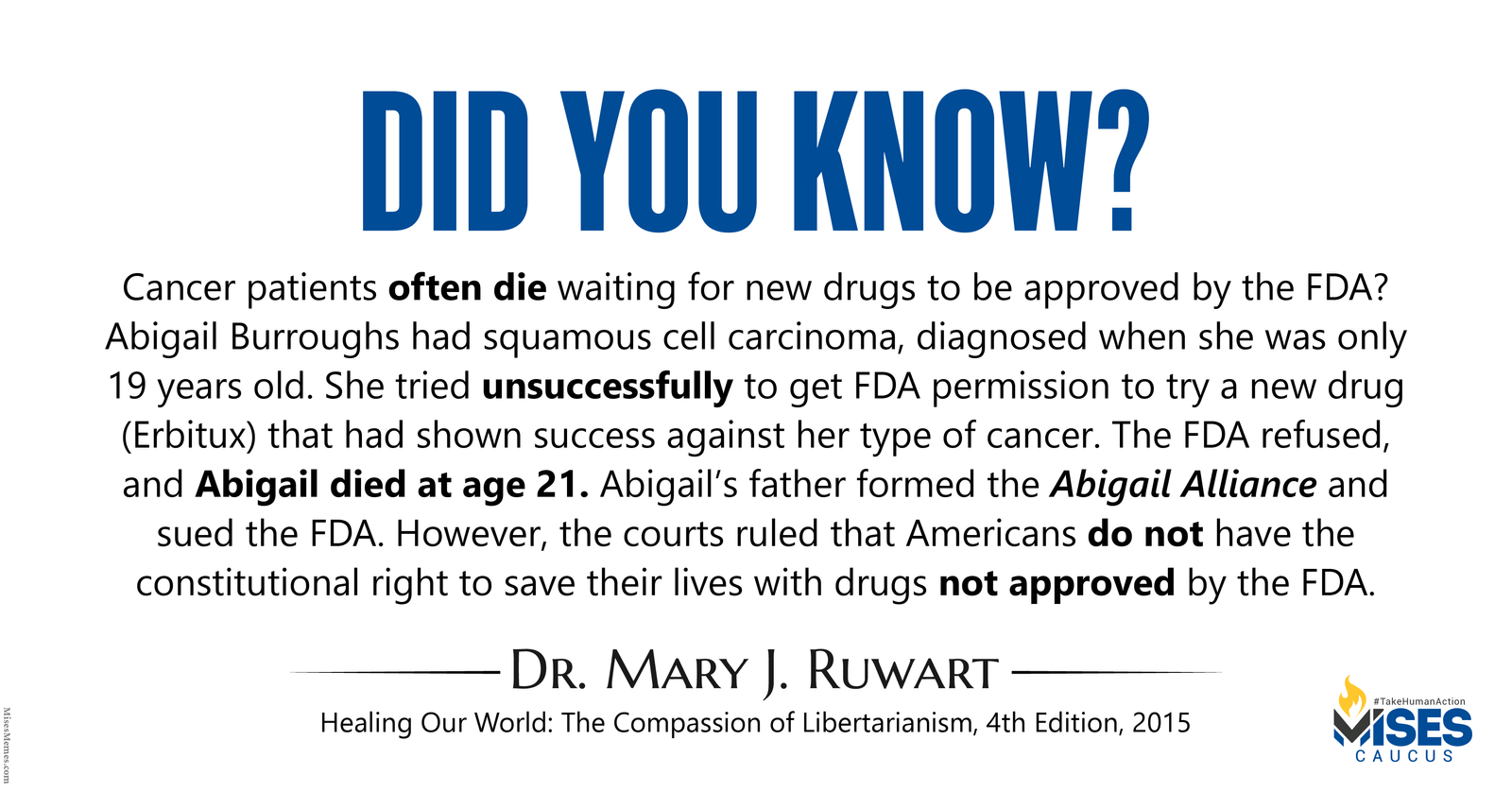
Cancer patients often die waiting for new drugs to be approved by the FDA? Abigail Burroughs had squamous cell carcinoma, diagnosed when she was only 19 years old. She tried unsuccessfully to get FDA permission to try a new drug (Erbitux) that had shown success against her type of cancer. The FDA refused, and Abigail died at age 21. Abigail’s father formed the Abigail Alliance and sued the FDA. However, the courts ruled that Americans do not have the constitutional right to save their lives with drugs not approved by the FDA. —Mary Ruwart
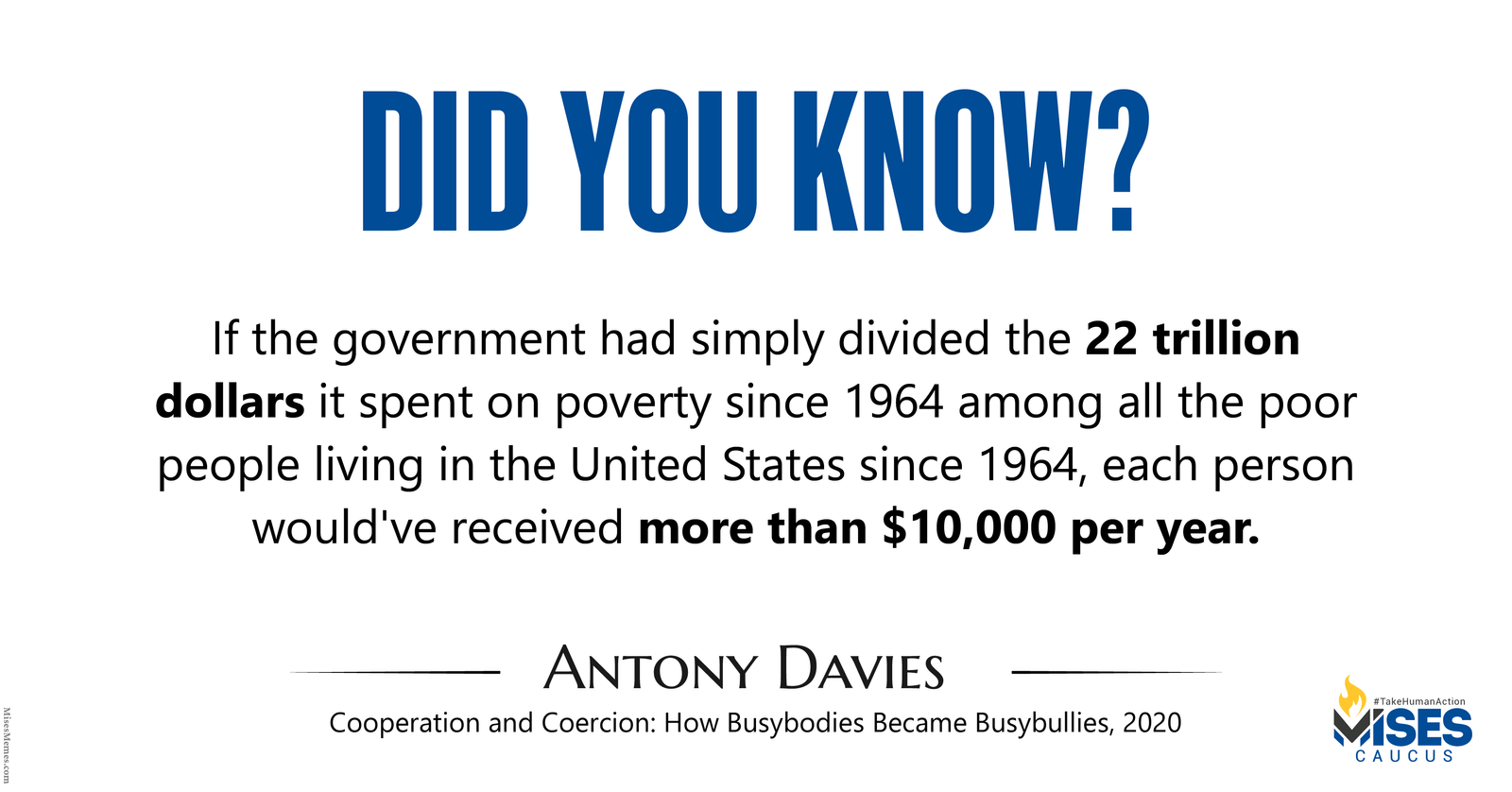
If the government had simply divided the 22 trillion dollars it spent on poverty since 1964 among all the poor people living in the United States since 1964, each person would’ve received more than $10,000 per year. —Antony Davies
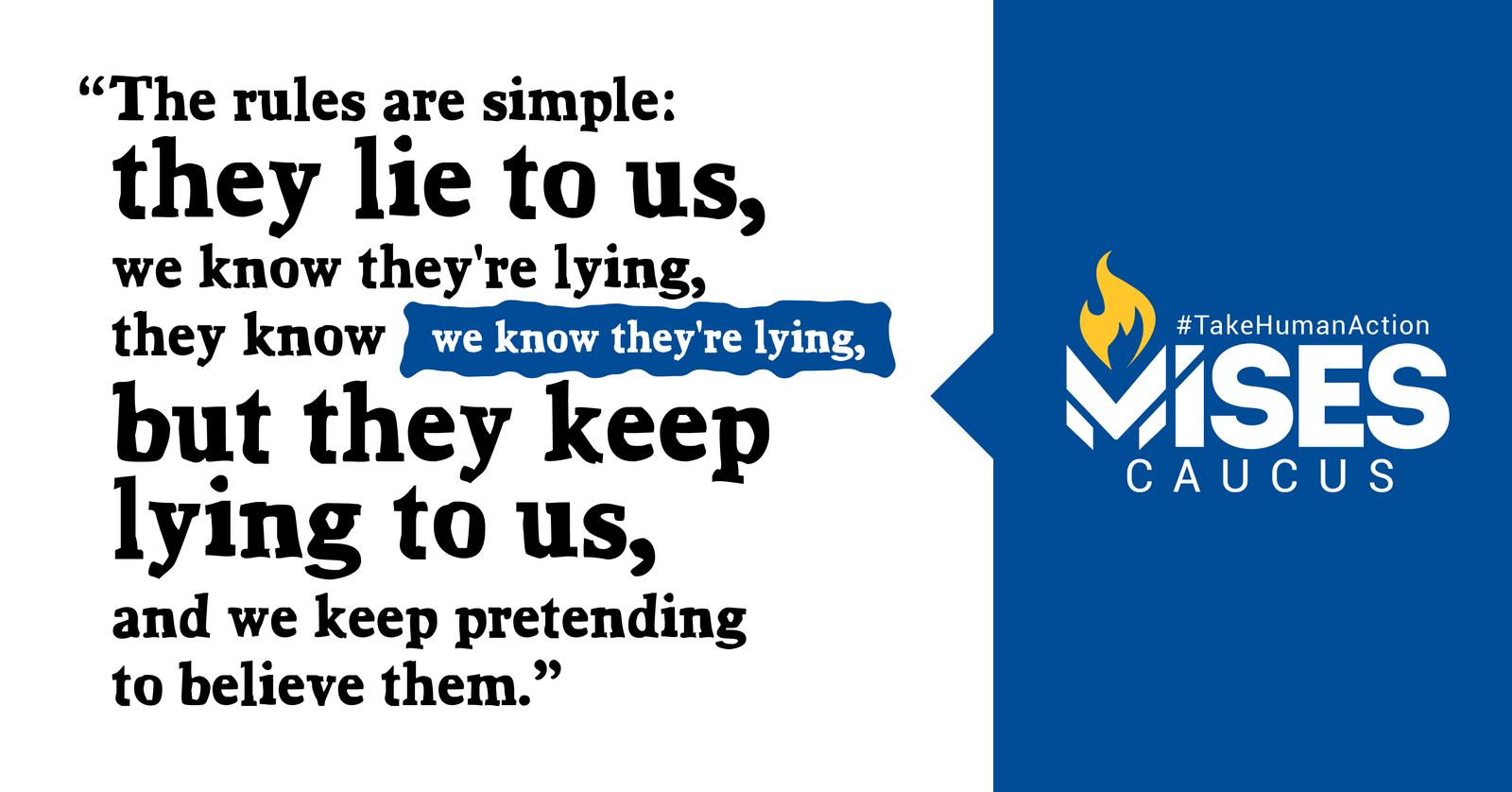
The rules are simple: they lie to us, we know they’re lying, they know we know they’re lying, but they keep lying to us, and we keep pretending to believe them. —from the memoir of a young girl who grew up in the Soviet Union